Book Burning and Beyond
In 1933, Remarque was forced by the rising tide of Nazism to flee his native Germany for the relative calm and security of Switzerland, where several years earlier he had purchased a lakeshore villa. Seeing the writing on the wall, he left Berlin just one day before Adolf Hitler was appointed German chancellor on January 30, 1933.
Several months later, in May 1933, pro-Nazi students consigned his works to the flames during the fiery book burning spectacles staged throughout the country. In Berlin, as the students assembled on the Opernplatz opposite the university with piles of books for the pyres, the Nazi speaker denounced various authors for their un-German spirit, concluding with the following comments:
Subsequently, German police purged his works from bookstores, libraries, and universities. In 1938, the Nazi government stripped him of his German citizenship. From 1933 onward, Remarque spent his remaining days outside of Germany, except for occasional trips made after the Nazi defeat in 1945.
Though he lost much of his German-speaking audience when the Nazis banned his books, his novels, in translation, continued to find new readers in the United States and elsewhere. In contrast to many of his fellow German exiled writers, Remarque did not suffer a significant loss of fame or fortune when he left Germany. Major publishers still printed his work, magazines, like Collier’s serialized his new fiction, and Hollywood filmed a many of his novels.
Themes in the work of Erich Maria Remarque
Erich Maria Remarque’s novels focus on wartime and postwar experiences and contain many related themes. The main theme found in most of his novels is the horrors of war without romanticizing or glorifying war.
All Quiet on the Western Front repeatedly details soldiers’ realistic and gruesome realities during WWI. These experiences include constant and brutal death, psychological struggles of traumatized soldiers, and the impact of the war on soldiers returning home.
Another major theme in the work of Remarque is the loss of youth due to war. Many soldiers left for war very young, most in their early twenties. This meant many had to sacrifice the joys of youth and had to quickly grow up. Furthermore, fighting on the front lines meant experiences of horrific realities that traumatized soldiers for the rest of their lives. This meant when soldiers went home after the war, they would never be the same.
 Many WWI soldiers were very young and lost their youth during the war, Pixabay
Many WWI soldiers were very young and lost their youth during the war, Pixabay
Finally, the theme of statelessness is constant in his novels. Both World Wars created many refugees that had to flee their home countries and try to find a better life elsewhere. Many had no passports or legal papers and were under the constant threat of deportation back to a country they were not welcome in. This created a sense of statelessness and rootlessness.
This is true for characters such as the refugee Ravic from Arch of Triumph, who is banned from Germany but constantly fears France will deport him. Realizing he truly has no home to turn to where he will feel stable and safe creates a sense of statelessness in the character of Ravic.
Many more themes are found in the works of Remarque, but the horrors of war, the loss of youth, and statelessness are among the most frequent.
Writer’s childhood
On June 22, 1898, the second son, Erich Paul, was born to the Frenchman Peter Frank and the native German Anna Maria. Two years later, a daughter, Erna, was born in the family. But in 1901, a misfortune happened — their first-born Theodore died. In 1903, another daughter was born. The bookbinder had a small income, the family did not have their own housing, and they often had to change apartments, and, accordingly, schools.
Erich started school when he was six years old. But after fourthe family moved, it became difficult to get to school, and he was transferred to a public school. In 1914, the boy was sent to a school at the church, after graduating from which in 1915 he entered the teacher’s seminary, where he spent four years.
On the Western Front
Erich served in a reserve battalion, but in June 1917 he saw the trenches for the first time. A bloody drama unfolded before his eyes. Every day someone died, their arms and legs were torn off, fragments ripped open their stomachs. Erich learned to smoke and began to drink, because alcohol dulled fear. In the trenches, he forever buried his ideals, his dreams of giving his life for the Kaiser. His war lasted 50 days. In July, he was seriously wounded and sent to the hospital. The war shook him. A strange coincidence, but the date of birth of Erich Maria Remarque coincides with the date of the start of World War II.
Further service was held in the office of the same hospital where he was treated. In September, he received news of his mother’s death. On the 13th he arrived home, where he found out that his mother had died of cancer and forbade everyone to report their illness to Erich. Friend Fritz Herstemeier came to the funeral,an artist who never made it. He was older than Erich and became his mentor, the first literary teacher. At the station, where Fritz will come to see off Erich, they will see each other for the last time. Fritz died of his wound in the hospital. The image of this man is present in many works of Remarque. Erich returned home in October 1918 and was awarded the Iron Cross in November.
Примечания
. Затонский Д.В. Ремарк // История немецкой литературы. — Т. 5. — М.: Наука, 1976. — С. 198—214.
. Николаева Т.С. Творчество Ремарка-антифашиста. — Саратов: Изд-во Саратов, ун-та, 1983. — 134 с.
. Ремарк Э.М. Искра жизни / Пер. М. Рудницкого // Нева. — 1993. — № 1. — С. 71—161; № 2. — С. 60—184; № 3. — С. 130—192.
. Ремарк Э.М. Искра жизни / Пер. Р. Эйвадиса. — СПб.: Санкт-Петербургский комитет Союза литераторов России, ЭТС «Экслибрис», 1992. — 302 е.; СПб.: Кристалл, 2001. — 415 с.
. Ремарк Э.М. Искра жизни / Пер. В. Котелкина. М.: Вита-Центр, 1992. — 346 с.
. Фрадкин И. Ремарк и споры о нем // Вопросы литературы. — 1963. № I. С. 92—119.
. Эйвадис Р. // Ремарк Э.М. Искра жизни. — СПб.: Санкт-Петербургский комитет Союза литераторов России, ЭТС «Экслибрис», 1992. — С. 5—7.
. Antkowiak A. Erich Maria Remarque. — Berlin: Volk und Wissen Volkseigener Verlag, 1987. — 157 S.
. Böll H. Heißes Eisen in lauwarmer Hand // Literatur . — 1952. — 15. März.
. Ejwadis R. Erich Maria Remarque — auch ein «Fenster nach Europa?» // Erich Maria Remarque. Leben. Werk und weltweite Wirkung / hrsg. von Thomas F. Schneider. — Osnabrück: Rasch, 1998. — S. 445—452.
. . Glunz C. «Eine harte Sache». Zur Rezeption von Erich Maria Remarques «Der Funke Leben» // Reue ist undeutsch: Erich Maria Remarques «Der Funke Leben» und das Konzentrationslager Buchenwald; Katalog zur Ausstellung / hrsg. von Thomas F. Schneider und Tilman Westphalen. — Bramsche: Rasch, 1992. — S. 21—27.
. Kogon E. Der SS-Stadt. Das System der deutschen Konzentrazionslager. — München: Wilhelm Heyne, 1977.
. Korn K. Konzentrierte Welt // Frankfurter Allgemeine Zeitung . — 1952. — 4. Oktober.
. Remarque E.M. Das unbekannte Werk. Briefe und Tagebücher / hrgs. von Thomas F. Schneider und Tilman Westphalen. — Köln: Kiepenheuer & Witsch, 1998 — B. 5. — 727 S. (a)
. Remarque E.M. Der Funke Leben. — Köln: Kiepenheuer & Witsch, 1998. — 401 S. (b)
. Reue ist undeutsch: Erich Maria Remarques «Der Funke Leben» und das Konzentrationslager Buchenwald; Katalog zur Ausstellung / hrsg. von Thomas F. Schneider und Tilman Westphalen. — Bramsche: Rasch, 1992. — 158 S.
. Rhode H. Remarque — heiß oder lau? // Literatur , — 1952. — 1. Oktober.
. Schneider Th. Heißes Eisen in lauwarmer Hand: Zur Rezeption von Erich Maria Remarque «Der Funke Leben» / Erich Maria Remarque. Jahrbuch / Yearbook 1994. — IV. — S. 29—44.
. Schneider Th. Mörder, die empfindlich sind. Zur Entstehung von «Der Funke Leben» // Reue ist undeutsch: Erich Maria Remarques «Der Funke Leben» und das Konzentrationslager Buchenwald; Katalog zur Ausstellung / hrsg. von Thomas F. Schneider und Tilman Westphalen. — Bramsche: Rasch, 1992. — S. 14—20.
. Schneider Th. Zur Remarque-Rezeption in Deutschland. Eine Annäherung // Das Wort. Germanistisches Jahrbuch 1995. — M.: DAAD, 1995. — S. 168—178.
. Sternburg W. «Als wäre alles das letzte Mal». Erich Maria Remarque. Eine Biîgraphie. — Köln: Kiepenheuer & Witsch, 2000. — 512 S.
. Straub M. Bilder vom Widerstand: Erich Maria Remarques «Der Funke Leben» und spätere literarische Zeugnisse über Buchenwald // Erich Maria Remarque. Leben. Werk und weltweite Wirkung / hrsg. von Thomas F. Schneider. — Osnabrück: Rasch, 1998. — S. 289—309.
. Strümpel J. Kammersymphonie des Todes. Erich Maria Remarques «Der Funke Leben», Anna Segers’ «Das siebte Kreuz» und eine Gattung namens ‘KZ-Roman’ // Text + Kritik. Erich Maria Remarque. Januar 2001. — Heft 149. — München: Richard Booberg Verlag, 200). — S. 55—64.
. Westphalen T. Die Würde des Menschen ist unantasbar // E.M. Remargue. Der Funke Leben. — Köln: Kiepenheuer & Witsch, 1998. — S. 375—397.
Return
Erich He returned to the seminary, but he became a completely different person: no mischief, no skipping lessons, he studied diligently. In June 1919 he received his diploma. For almost a year he worked in different schools, but in 1920 he left and never returned to teaching. Partly because, after the horrors of front-line life, it was hard for him to look into the trusting children’s eyes. Perhaps because he was working on his debut novel, Attic of Dreams.
In 1920, the novel was published by the same publishing house that had previously published Erich’s stories. Criticism fell upon him, even the offensive nickname Pachkun surfaced. Erich Maria Remarque was so worried that he thought about suicide. Such an unexpected turn in his writing career drove the young author into a state of stupor.
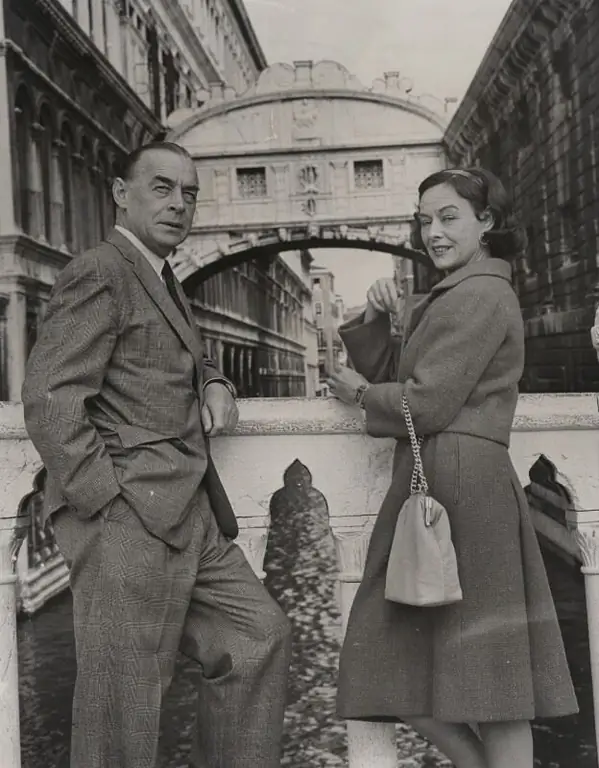 Erich Maria detailed biography
Erich Maria detailed biography
Career
At the onset of World War I, Erich Maria Remarque was called to serve in the army. During this time, he was only 18 years old. On June 12th, 1917, he received a transfer to the Western Front situated in Hem-Lenglet. A few days later, on June 26th, he was further stationed between Houthulst and Torhout. However, the following month, he got wounded on his left leg, neck and his right arm. Remarque had to be sent to an army hospital to get well. This is where he spent the entire war period.
With time, Remarque decided to try out teaching profession. Two years later, he landed himself a job as a primary school teacher. Things did not seem to work out fine in this profession, and he quickly left for other jobs. Some of the jobs that he landed on include librarian, editor, journalist, and a businessman. He also delved into writing where he got paid for writing for the Continental Rubber Company. This was a tire manufacture company in Germany.
advertisement
advertisement
Time to live
Remarque drank a lot during these years, but a real surprise awaited him in August 1942 at the medical board, when he was told that he had cirrhosis of the liver. In January 1941, the writer met Natasha Pale. She will become Remarque’s greatest love and the greatest misfortune of his life. She will appear before the reader in the novel «Shadows in Paradise», the last work of the master. Remarque will get rid of this obsession only in 1950.
In 1943, the Nazis executed Remarque’s sister Elfrida. The writer until the end of his life could not come to terms with this tragedy. In 1945, Colles began publishing chapters from Erich Maria Remarque’s book Arc de Triomphe. The book, of course, did not surpass the success of the first novel. But this novel is special, disturbing, poignant, where the writer writes about what is painful — about human cruelty and mercy, about selflessness and short-sightedness.
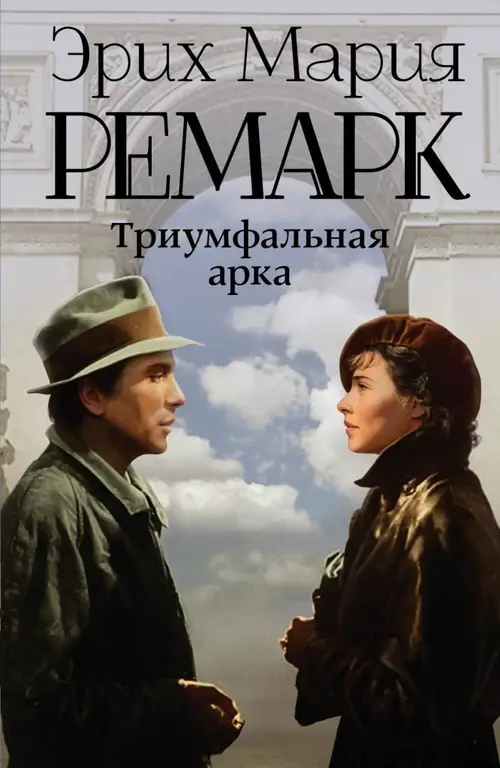 Triumphal Arch
Triumphal Arch
The next work of Remarque was the novel “A Time to Live and a Time to Die” about a soldier who returned to the ruins of his home. A person who has passed the crucible of death begins a new life, but dies at the hands of the one he saved. A book about rethinking war. That it is immoral, destroys everything human, leaving only animal instinct in people.
In 1946, Remarque begins to work on the book «The Spark of Life», which takes place in a concentration camp. One of the heroes is the camp commandant, and the author describes his family, life, thoughts. The author slowly explores the phenomenon of turning exemplary German citizens into notorious killers. Quite an interesting fact: Erich Maria Remarque first took up a topic, the details of which he heard only from eyewitnesses.
After the War
In his postwar novels, Remarque attempted to continue to expose Nazi crimes. As such, he was among the first and most prominent German writers to address Nazi mass murder, the concentration camp system, and the issue of the population’s culpability in these crimes, in such works as Der Funke Leben (Spark of Life) and Zeit zu leben und Zeit zu sterben (published in English as A Time to Love and A Time to Die).
After the war, he also learned that his younger sister, Elfriede, had been arrested and tried before the Nazi People’s Court for making anti-Nazi and “defeatist” remarks. Convicted, she was sentenced to death and beheaded on December 16, 1943. He dedicated Der Funke Leben (Spark of Life) to her memory. In an attempt to bring those who denounced her to justice, he hired Robert Kempner, one of the US prosecutors at the Nuremberg Trials of Nazi war criminals, to investigate this matter.
In 1948, Remarque returned to Switzerland as an American citizen. His works were once again published in Germany, although they frequently received negative criticism and were revised to edit out politically “unpalatable” passages. In 1958, he married American film star Paulette Goddard, with whom he remained until his death in 1970.
Biography of Erich Maria Remarque
On the 22nd of June 1898, Erich Maria Remarque (Born Erich Paul Remark) was born in Osnabrück, Germany. Remarque’s family was Roman Catholic, and he was the third child out of four. He was particularly close to his mother. When Remarque was 18 years old, he was drafted into the Imperial German Army to fight in World War 1.
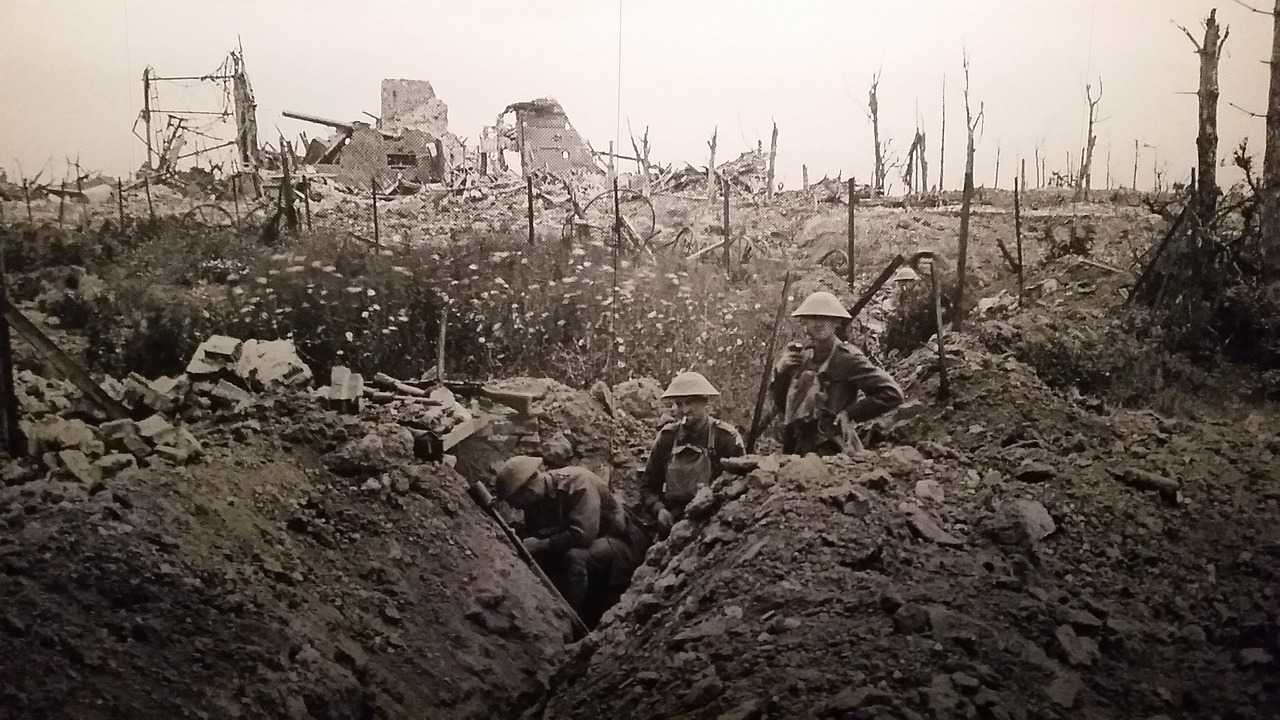 Remarque was a soldier during WWI, Pixabay
Remarque was a soldier during WWI, Pixabay
In 1917, Remarque was injured and returned to war in October 1918. Shortly after his return to war, Germany signed an armistice with the Allies, effectively ending the war. After the war, Remarque completed his training as a teacher and worked in various schools in the Lower Saxony region of Germany. In 1920, he stopped teaching and worked many jobs, such as a librarian and journalist. He then became a technical writer for a tire manufacturer.
In 1920, Remarque published his first novel Die Traumbude (1920), which he had begun writing at the age of 16. In 1927, Remarque published his next novel, Station am Horizont, in serialized form in Sport im Bild, a sports magazine. The protagonist of the novel is a war veteran, much like Remarque. In 1929, he published the novel that would define his career titled All Quiet on the Western Front (1929). The novel was incredibly successful because of how many war veterans could relate to the story, which detailed the experiences of soldiers during WWI.
Remarque changed his middle name to Maria to honor his mother, who died not long after the end of the War. Remarque also changed his last name from the original Remark to honor his French ancestors and to distance himself from his first novel, Die Traumbude, published under the name Remark.
Road to America
In 1937 Erich Maria Remarque’s The Return was published in English. A film was made based on the novel six months later. In May, Jutta appeared in Remarque’s house, she fled from Germany. In June 1937, Remarque and Jutta received the citizenship of Panama, and in 1938 they signed for the second time. In July, an article was published in all German newspapers that he had been stripped of his German citizenship.
The writer began work on the «Arc de Triomphe». In the image of Joan, one can guess Jutta and Ruta, Marlene Dietrich, whom he met in Venice. An interesting fact from the life of Erich Maria Remarque: he courted Marlene, she answered him coldly, but accepted gifts. One day he saw her cleaning the floors herself. And Remarque could not understand why she did not choose him, because she could live in luxury.
In February 1939, Remarque finished work onthe work “Love thy neighbor”, and he was invited to America to the Congress of writers. Returning to Switzerland, Remarque was afraid that Hitler would swallow it up in the same way as Austria. Staying here is dangerous. Ahead of him was New York.
In Westwood, Remarque bought a villa, and in Europe the war raged with might and main. The writer read the newspaper reports with pain. How could this happen: Czechoslovakia, Hungary, Poland, France … In October 1939, Jutta arrived in America, but she was not allowed into the country. Remarque rushed to her rescue, but the authorities seemed suspicious of his Panamanian passport. They were allowed to live in Mexico. In 1940 they were allowed to return to America.
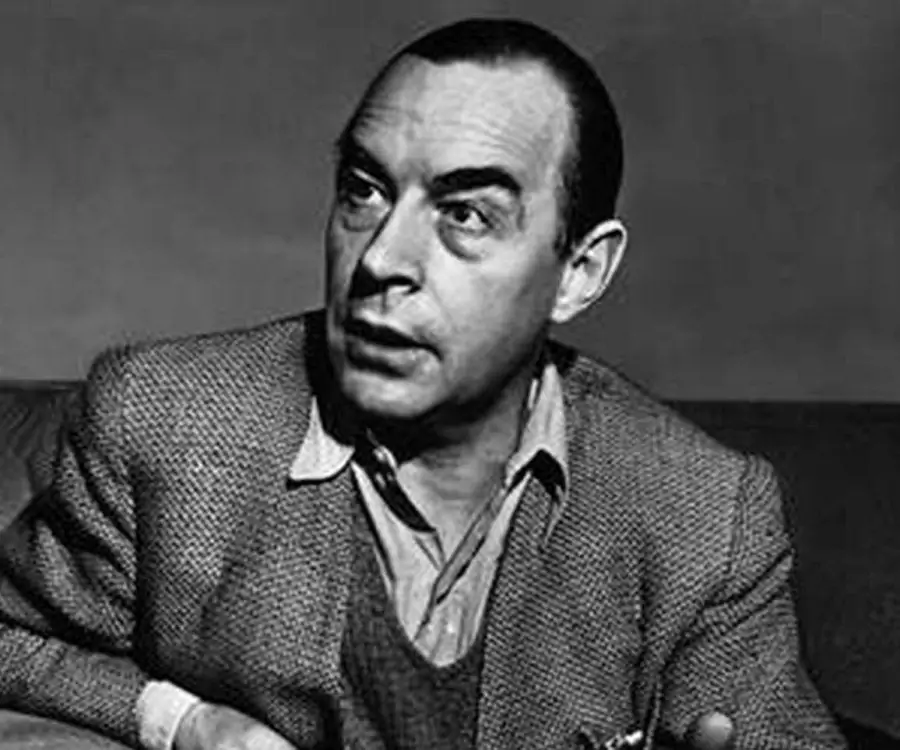 erich maria personal life
erich maria personal life
Emigration
In March 1930, Remarque received a call from the American magazine Koles and was asked to write something for them. During the year he sent them six stories about the war. On December 4, 1930, the premiere of the painting “On the Western Front” was to take place in Berlin. The day before, Goebbels appeared in the press, promising to resort to violence for showing the film. The premiere took place. But on December 11, the film was banned from showing by the film inspection. In 1931, On the Western Front won an Oscar.
In April 1931 the novel «The Return» was published as a separate book. The writer traveled around France, took a lot of notes, which then form the basis of the novel «Life on loan». In the summer he leaves for Switzerland and buys a villa in Ponto Ronco. At the beginning of 1932 he lived in Osnabrück and worked on the novel “Threecomrade.» As described in a detailed biography, Erich Maria Remarque traveled a lot. The book progressed heavily, and Remarque left for Berlin, where a scandal followed almost immediately. He was accused of hiding income.
The writer went to Switzerland. A year later, he returned to Germany, but a new scandal immediately followed. Remarque could not believe that he would have to emigrate. In January, Hitler was elected Chancellor of Germany — no illusions left. Remarque could not even calmly go out into the street, the Nazis pursued him everywhere. He returned to Switzerland. At the end of 1933, the Nazis seized all Remarque’s books from libraries and shops. The writer lived without a break in Switzerland.
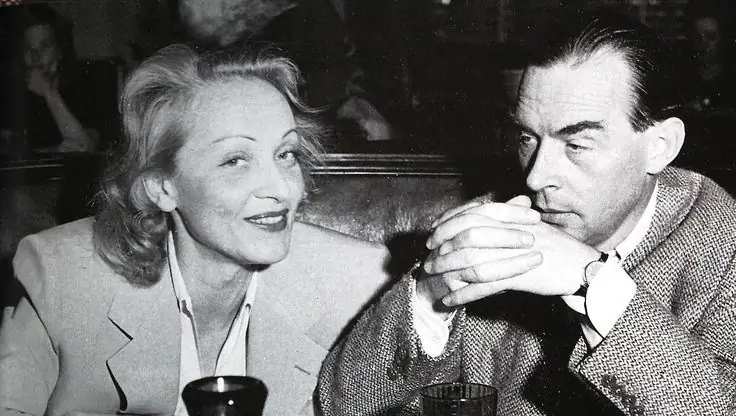 Erich Maria interesting facts from life
Erich Maria interesting facts from life
Writing Career
Writing was not a new thing to Erich Maria Remarque as he had indulged in this profession when he was still 16 years old. His first works included poems and essays. In addition to this, he had also began writing his first novel that was later completed in 1920. This novel was called The Dream Room – 1920. It did not take long before All Quiet on the Western Front was published. A few things changed in his life including his name. His mother had also passed away, and in honor of her memory, he decided to adopt her name, i.e., Maria. Also, the family’s surname was Kramer, but he also changed its spelling and adopted the name ‘Remark.’
After that, he published Station at the Horizon in 1927. A few years later, he completed another novel titled The Road Back – 1931. After this, he purchased a home in Switzerland. This was a move that would guarantee him that he could live either in Switzerland or France. Other novels that he published, later on, include Three Comrades and Arch of Triumph. The latter work performed well, and it earned Remarque global recognition. Shadows in Paradise marked the end of his writing career.
advertisement
advertisement
World War II
In September 1939, Remarque left Europe for the United States, just as World War II was beginning. Dividing his time between New York and Los Angeles, he continued to write popular novels, which echoed, in part, the experiences of refugees forced to flee Nazi rule. Much of his post1933 fiction, such as Liebe deinen Nächsten (Flotsam), Arc de Triomphe (Arch of Triumph), Die Nacht von Lissabon (The Night in Lisbon), and the posthumous, Schatten im Paradies (Shadows in Paradise), depicts the lives and suffering of anti-Nazi emigres, their often ambivalent feelings towards Germany, and their sometimes difficult adjustments to life in exile.
In 1944, Remarque wrote a report for America’s Office of Strategic Services (OSS), the country’s foreign intelligence organization and the forerunner to today’s Central Intelligence Agency (CIA). In it, he urged the Allies to adopt a systematic policy for re-educating the German population after the war. Germans, he believed, had to be exposed to Nazi crimes and evils of militarism.
Literary success
After Christmas 1924, Erich went to Berlin, on January 1 he was already working as the editor of «Sport im Bild». The salary was good, but most of it went to rent. Erich was introduced to the young actress Jutta Zambona and lost his head. They became husband and wife in October 1925.
The novel «Station on the Horizon» in 1927 was published in parts in the magazine where Erich worked. Two years later, “All Quiet on the Western Front” comes out. Glory to Remarque literally fell. Jutta and Erich rented a spacious apartment. Stop needing money. A year later, his novel was made into a film. And the trips, restaurants, visits began. Jutta watched as Erich moved away from her, the family broke up, personal life collapsed. Erich Maria Remarque decided not to do anything, to leave everything as it is. They officially divorced in 1930.
In Germany, the Nazis raised their heads, and Remarque was literally persecuted. In early 1929 he left for Switzerland. When he returned to Berlin, all the newspapers discussed the news: it turns out that Erich Remarque is not a German, but a Jew. In October, he and a friend went to France. Returning from a trip, sat down for a new novel «Return». The book was completed a year later. The first chapter was published in the Vossische Zeitung on December 7, 1930.
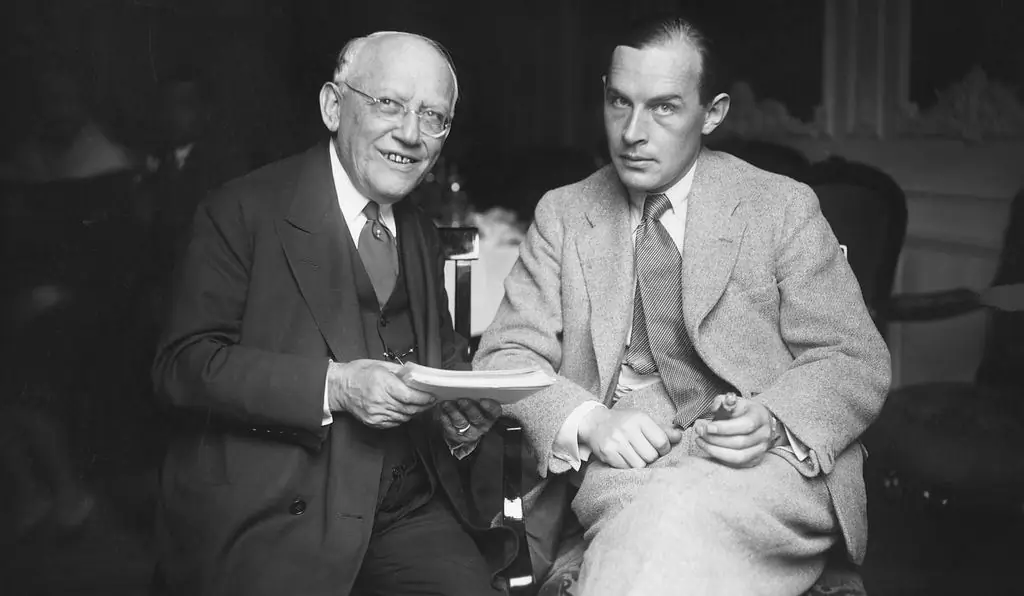 Erich Maria date of birth
Erich Maria date of birth
Writing style of Erich Maria Remarque
Erich Maria Remarque has an effective and sparse writing style that captures the horror of war and its effect on people in a way that grips the reader’s interest. The first key characteristic of Remarque’s writing style is his use of direct language and the use of short words and phrases. This moves the storyline quickly without missing too many details or the story’s main message. It also doesn’t dwell too long on the day-to-day details of the passage of time.
Another key characteristic in the writing of Remarque is that he chose not to dwell on the emotional reactions of the soldiers in many of his war novels. The horrors of war and the constant dying of fellow soldiers meant that many soldiers became numb to their feelings. For this reason, Remarque decides to create a distant feeling to the tragic events.
Strange to say, Behm was one of the first to fall. He got hit in the eye during an attack, and we left him lying for dead. We couldn’t bring him with us, because we had to come back helterskelter. In the afternoon suddenly we heard him call, and saw him crawling about in No Man’s Land,» (Chapter 1, All Quiet on the Western Front).
Personal Life
Erich Maria Remarque first marriage to Ilsa Jeanne Zamboui was not successful as the two ended up divorcing after only five years. The two had tied the knot in 1925, but both partners were unfaithful towards each other. After Nazis took over Germany, they eloped together to Remarque’s home in Switzerland. He was also romantically involved with Marlene Dietrich for a long period.
In 1938, he got married again to his former wife. This was mainly to prevent her from being forcefully deported to Germany. The two left for the United States in 1940. Seven years later, they both acquired their American citizenship. Their second divorce followed this.
Erich Maria Remarque wedded Paulette Goddard, an actress, in 1958. The two lived together to the time of his demise.
advertisement
advertisement
Quotes by Erich Maria Remarque
Here are some quotes from the works of Erich Maria Remarque along with brief explanations and analyses.
It is just as much a matter of chance that I am still alive as that I might have been hit. In a bombproof dug-out I may be smashed to atoms and in the open may survive ten hours’ bombardment unscathed. No soldier outlives a thousand chances. But every soldier believes in Chance and trusts his luck,» (Chapter 6, All Quiet on the Western Front)
Baeumer and his fellow soldiers have experienced so much hardship during the war they are now numb to their emotions. Remarque doesn’t focus on the emotions Baeumer is feeling. Rather he focuses on Baeumer’s logic. Baeumer understands his chances of dying are very high, and he could die horrifically at any point. However, he also knows that what pushes every soldier to continue moving is a belief in chance and luck.
Mellern had no gas chambers. Of this fact, the camp commandant, Neubauer, was particularly proud of. In Mellern, he liked to explain, one died a natural death,» (Chapter 1, Spark of Life).
This quote from Remarque’s Spark of Life demonstrates his writing style. Notice the short words and phrases as well as the direct language. It is also a subtle way to remark on the twisted mindset of the camp commandant, who believes simply because the prisoners die «a natural death,» it is more humane than a gas chamber.
Last meetings
In 1947, Remarque and Jutta became American citizens, and in 1948 he went to Europe. I went to my house in Switzerland, I did not dare to call in Germany. I went into the house, and there was my father. Remarque’s legs buckled with excitement. Together they spent a week. Remarque hired a driver who would take his father home.
The writer met Pollet and, in order not to take his beloved woman to a hotel, bought an apartment in New York. He was 12 years older than Pollet; a brilliant actress, she will be the writer’s faithful companion and will be with him until the end of his days.
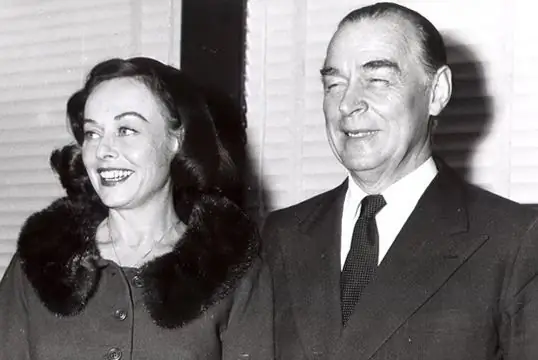 Erich Maria
Erich Maria
In July 1952, Remarque nevertheless dared to come to Germany. In his hometown he is greeted as a national hero. In 1953 he will return here again, this will be the last meeting with his father — in 1954 he will be gone. ATIn December 1954, Remarque began a new novel, The Black Obelisk. Like “On the Western Front”, this is an autobiographical book in which the writer describes his biography and work.
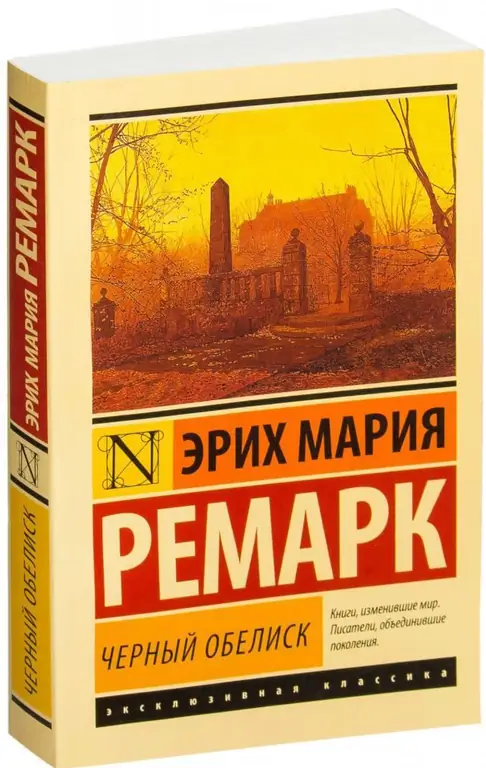 remark black obelisk
remark black obelisk
Erich Maria Remarque in 1957 wrote the screenplay for the film A Time to Live and a Time to Die. In early 1958, the writer decided to get married. He was 60 years old, and he was afraid that Pollet would refuse. She agreed. On February 25, they became husband and wife. A year later, his novel “Life on loan” was published. Critics started talking about the fact that Remarque had written himself, but in the middle of 1961, Remarque’s extraordinary work “Night in Lisbon” was released.
This novel was the last that the writer managed to finish. On June 22, 1968, Remarque celebrated his 70th birthday. On September 25, 1970, the writer’s heart stopped beating.
World War I
World War I played a crucial role in Remarque’s evolution as a writer. In November 1916, Remarque, along with a number of his classmates, was drafted into the German army. After a period of military training, his unit was sent to the Western Front. There he took part in the trench warfare in Flanders, Belgium. In July 1917, he was wounded by shell fragments during a heavy British artillery attack. After a lengthy convalescence he was recalled to active military service in October 1918. Shortly thereafter, Germany’s imperial government was toppled in a revolution, and the country became a republic. On November 11, 1918, the new government signed the armistice with the Allies, which ended the fighting. Remarque’s wartime experiences, including the loss of some of his comrades, made a strong impression on the young man and served as inspiration for All Quiet on the Western Front.
He returned to Osnabrück, where he finished his educational training. He subsequently took up teaching, but his career was short-lived, He quit this profession in 1920. To make ends meet, he gave piano lessons, served as an organist, and wrote theater reviews for a local newspaper. During this time, he published his first novel, Die Traumbude (The Dream Booth) as well as some poetry and other fiction. In 1922, he moved to Hannover, where he took a position as a writer and editor for Echo Continental, a magazine owned by the Continental Rubber Company, a leading manufacturer of automobile tires. Here he wrote advertising copy, crafted slogans, and published articles on travel, cars, and outdoor life. He also adopted the name Erich Maria Remarque, using the original French spelling of his family’s name.
In 1925, he relocated to Berlin, where he served as an editor for the popular sports illustrated magazine, Sport im Bild. In the German capital, he mingled with leading writers and film makers, including Leni Riefenstahl, who later created Triumph of the Will and other films in Nazi Germany.
Published Works
Novels:
1920 Die Traumbude
1929 Im Westen Nichts Neues (All Quiet on the Western Front)
1931 Der Weg Züruck (The Road Back)
1938 Drei Kameraden (Three Comrades)
1941 Liebe deinen Nächsten, (Love Thy Neighbor), published in English as Flotsam
1945 Arc de Triomphe (Arch of Triumph)
1952 Der Funke Leben (Spark of Life)
1954 Zeit zu leben und Zeit zu sterben (A Time to Live and A Time to Die), published in English as A Time to Love and A Time to Die
1956 Der schwarze Obelisk (The Black Obelisk)
1961 Der Himmel kennt keine Günstlinge (Heaven has no Favorites)
1962 Die Nacht von Lissabon (The Night in Lisbon)
1971 Schatten im Paradies (Shadows in Paradise)
Author(s):
United States Holocaust Memorial Museum, Washington, DC

























